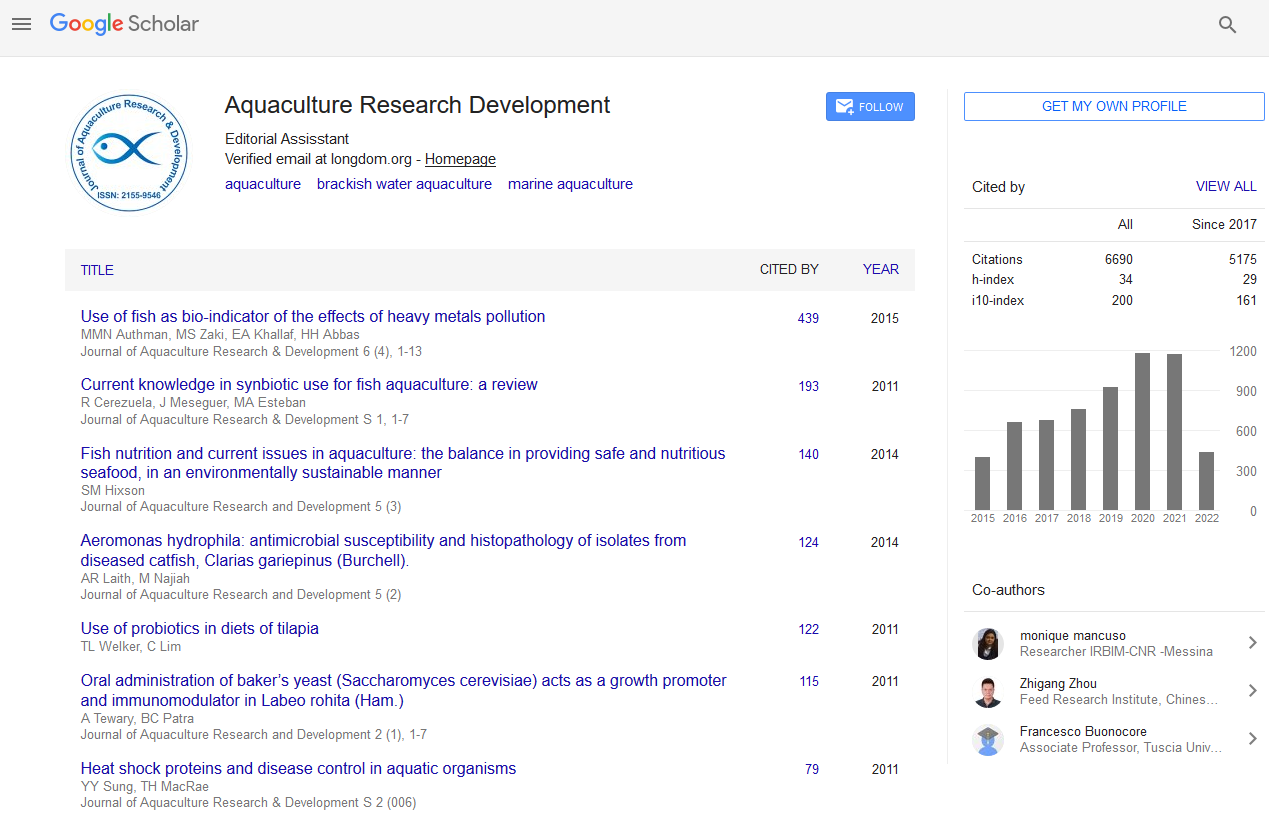PMC/PubMed Indexed Articles
Indexed In
- Online Access to Research in the Environment (OARE)
- Open J Gate
- Genamics JournalSeek
- JournalTOCs
- Scimago
- Ulrich's Periodicals Directory
- Access to Global Online Research in Agriculture (AGORA)
- Electronic Journals Library
- Centre for Agriculture and Biosciences International (CABI)
- RefSeek
- Directory of Research Journal Indexing (DRJI)
- Hamdard University
- EBSCO A-Z
- OCLC- WorldCat
- Scholarsteer
- SWB online catalog
- Virtual Library of Biology (vifabio)
- Publons
- MIAR
- University Grants Commission
- Euro Pub
- Google Scholar
Useful Links
Share This Page
Journal Flyer

Open Access Journals
- Agri and Aquaculture
- Biochemistry
- Bioinformatics & Systems Biology
- Business & Management
- Chemistry
- Clinical Sciences
- Engineering
- Food & Nutrition
- General Science
- Genetics & Molecular Biology
- Immunology & Microbiology
- Medical Sciences
- Neuroscience & Psychology
- Nursing & Health Care
- Pharmaceutical Sciences
Pesticides: A threat to fish
10th Euro-Global Summit on Aquaculture & Fisheries
October 08-09, 2018 | London, United Kingdom
Garima Harit
IIS University, India
Keynote: J Aquac Res Development
Abstract:
Indiscriminate use of different pesticides in agriculture has increased over the years, especially in the developing countries, this influences the aquatic environment to a great extent. It also poses a great threat to freshwater organisms, which constitute a major share in the aquatic environment and contribute to the economy of the nation. Fish play a vital role in food and nutritional aspects of the country due to the presence of high quality animal proteins, vitamins (A, B, D and E) and minerals essential for vitality and growth. Fishes are also amongst the best biological indicators of pollution as they can take up contaminants directly from water and diet. The ability of fish to metabolize organochlorines is moderate; therefore, contaminant loading in fish is reflective of the state of pollution in the surrounding environment. Organo-Chlorine Pesticides (OCPs) are a major contributor to aquatic pollution and are amongst the most serious global contaminants. In addition, organochlorine pesticides have a tendency to accumulate in aquatic biota; they also undergo food chain amplification. Lipophilic pollutants are chemically very stable and resistant to microbial, photochemical, chemical and thermal degradation. The chemical stability of these compounds, their high lipid solubility and toxicity to human beings and animals has led government and researchers to feel concerned about their presence in the environment. Degradation of pesticide through biological means using bacteria and fungi is receiving serious attention as compared to existing conventional methods and such alternative methods should be adopted to minimize environmental deterioration till more realistic policies are developed. It is suggested that stringent government regulations and monitoring of water bodies should be observed.
Biography :
Garima Harit has completed her research work under the supervision of Prof. Neera Srivastava in the Department of Zoology, University of Rajasthan, Jaipur, India. Her areas of specialization are fish biology, ecotoxicology and fish behaviour. She has published eight papers in renowned journals along with two papers and a chapter in communication. She has given several oral and poster presentations in various National and International Conferences and has also received Best Paper Award in 2016 for her research work at University of Rajasthan. She was also nominated as a Jury Member of Eco Film Festival in an International Conference this year. She is currently working as an Assistant Professor in Department of Zoology, The IIS University, Jaipur, India.
E-mail: haritgarima@live.com


